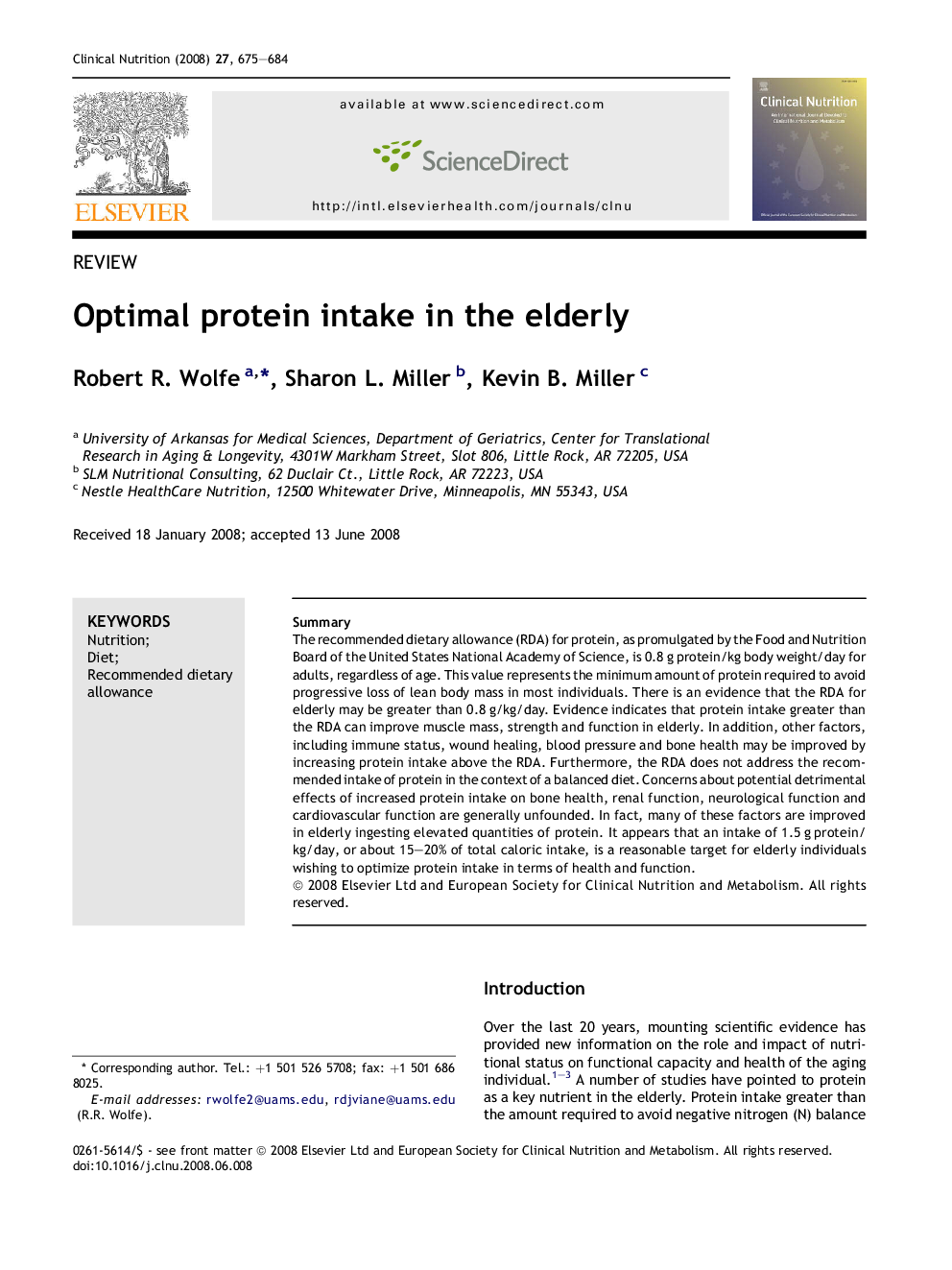| Article ID | Journal | Published Year | Pages | File Type |
|---|---|---|---|---|
| 2683324 | Clinical Nutrition | 2008 | 10 Pages |
SummaryThe recommended dietary allowance (RDA) for protein, as promulgated by the Food and Nutrition Board of the United States National Academy of Science, is 0.8 g protein/kg body weight/day for adults, regardless of age. This value represents the minimum amount of protein required to avoid progressive loss of lean body mass in most individuals. There is an evidence that the RDA for elderly may be greater than 0.8 g/kg/day. Evidence indicates that protein intake greater than the RDA can improve muscle mass, strength and function in elderly. In addition, other factors, including immune status, wound healing, blood pressure and bone health may be improved by increasing protein intake above the RDA. Furthermore, the RDA does not address the recommended intake of protein in the context of a balanced diet. Concerns about potential detrimental effects of increased protein intake on bone health, renal function, neurological function and cardiovascular function are generally unfounded. In fact, many of these factors are improved in elderly ingesting elevated quantities of protein. It appears that an intake of 1.5 g protein/kg/day, or about 15–20% of total caloric intake, is a reasonable target for elderly individuals wishing to optimize protein intake in terms of health and function.
